I Wanted to See as a Child.
When Natural History Has a Telos.
“The embryos stood in front of God, with their feeble hands clasped politely over their stomachs, and their heavy heads hanging down respectfully, and God addressed them.
“He said: 'Now, you embryos, here you are, all looking exactly the same, and We are going to give you the choice of what you want to be. When you grow up you will get bigger anyway, but We are pleased to grant you another gift as well. You may alter any parts of yourselves into anything which you think would be useful to you in later life…’
“All the embryos thought the matter over politely, and then, one by one, they stepped up before the eternal throne. They were allowed two or three specialisations, so that some chose to use their arms as flying machines and their mouths as weapons, or crackers, or drillers, or spoons, while others selected to use their bodies as boats and their hands as oars… Everybody specialised in one way or another, and some of us in very queer ones…
“The asking and granting took up two long days - they were the fifth and six, so far as I remember - and at the very end of the sixth day, just before it was time to knock off for Sunday, they had got through all the little embryos except one. This embryo was Man.
“ ‘Please God,’ said the last embryo, ‘I think that You made me in the shape which I now have for reasons best known to Yourself, and that it would be rude to change. If I am to have my choice, I will stay as I am. I will not alter any of the parts which You gave me, for other and doubtless inferior tools, and I will stay a defenceless embryo all of my life, doing my best to make myself feeble implements out of the wood, iron and the other materials which You have seen fit to put before me… I have done my very best to think it over carefully, and now hope that the feeble decision of this small innocent will find favour with Yourself.’
“ ‘Well done,’ exclaimed the Creator in delighted tones. 'Here, all you embryos, come here with your beaks and whatnots and look upon Our first Man. He is the only one who has guessed Our riddle, out of all of you, and We have great pleasure in conferring upon him the Order of Dominion over the Fowls of the Air, the Beasts of the Earth, and the Fishes of the Sea… Man, you will be a naked tool all your life, though a user of tools You will look like an embryo until they bury you… Eternally undeveloped, you will remain potential in Our image, able to see some of Our sorrows and to feel some of Our joys.’”1
How can we Do Knowledge without becoming specialised? I have never become specialised in Anything that is why I am genius when it comes to seeing the Whole of Something. To see how organic dynamic Livingness is about multiplicity within unity is Easy for me. I failed in high school science because Analytical Paradoxes are no problem to me. I see the Cat itself and see how it Had to Exist in order for Catness to Be.
These are notes for You to see too.
The lowest group of vertebrates - strictly, the chordates - has a primitive hollow nerve chord. The anterior end of this is developed in the fishes to form the brain. It is the possession of a central nervous system which distinguishes the fishes from the invertebrates. The fishes breathe through gills, whereas the next higher class, the amphibians, transfers breathing to the interior of the body by replacing the gills with lungs. However, the amphibians depend on moisture from their environment. The next class, the reptiles, becomes free from this particular dependence on the environment by developing a closed fluid system. Nevertheless, the reptiles remain dependent on the external environment for warmth. The birds are the first class to become free from this dependence, developing an independent system of warmth which keeps their body temperature consistent - however they remain dependent on the external environment for the development of offspring. The further step of independence is taken by the placental mammals, when the development of offspring takes place within the uterus of the mother.
This sequence from fish to mammal discloses an increasing degree of independence from the environment by the progressive internalisation of the different life functions… It is the nervous system which develops independence first. The emancipation of the higher animals from their environme2 nt develops from their head downwards.
But the placental mammals as such do not represent the end of this process of emancipation. They are bound to their environment by means of their limb system. Moles have shovel like claws, seals have flippers, horses have hooves… all of these adaptations mean that they are not independent of their environment in their limb systems. Emancipation from this dependency is the step taken by man. What emerges at the end of the sequence is the organism which is the least specialised biologically, the least dependent on, a specific environment… Compared with the highly developed limb structures of the mammals, the human hand is undeveloped biologically. But this in fact frees it to perform and indefinite number of functions, by the use of tools, without being tied to any particular use and therefore any particular environment.3
The animals Work into Niches. They exist to Express a Speciality to compliment their Natural Environment. As if Nature revels in endless difference and variety. As if this was the very core of livingness itself.
When you look at an animal, really look at it, it is difficult to even know What to think. You look at the perfectness of this autonomous Living Being… it's kind of crazy, you can't really consciously take it in at all, you can't analyse a living animal. How did this Horse come to be?
I am looking at a Horse, I just brought her some long dry grass, she uses her long flexible mouth to sort out the buttercup amongst the pile and avoid it. Her owner tells me Horses are close to Elephants in this way. I think of Kings riding Elephants.
A Horse is Not an Elephant. Because it is Closer to Man. The domestic creatures are closer to Man, dependent on Us as well as their Environment, their specialisations are oriented towards Us as well. They are not wild.
The Horse has a very large Intermaxillary Bone. For a long time natural scientists declared this bone was the thing that separated Human Beings from the animal kingdom, until Goethe discovered it's diminutive equivalent in a human skull. Goethe is my favourite genius.
This little bone isn't what separates us from the animals. We are in fact connected to All Creatures Great And Small. But then why are we different?
There is an image/idea I have come across that the animals are really shed and discarded images of the perfect man, who has Been Here Since The Origin Of The World. Someone said the Universe zoomed out looks like a Human Nervous System. We have known this all along, in the way of a child… everything already exists in the Embryo.
We recapitulate our phylogeny when we are little baby embryos, from fish to amphibian to reptile to bird to mammal to Man. Or is it that Man is all of those things already, or never was.
In the development of the embryo we see the cerebellum, the continuance of the spinal cord, and watching the further development of the embryo we observe the cerebrum growing slowly backwards so as to overarch the whole being. Even the highest animals do not show a complete overarching of the cerebrum…
The animal head is linked up differently with the spinal cord. The line of the spinal cord continues straight into the brain… They are much more linked up with and bound to their bodies. Man in so far as he is fully conscious, dominates and rules his body to a far higher degree. He has evolved in his head an organ which provides him a certain freedom from the rest of his body.
Furthermore, the human brain has a quite peculiar position which we not find in the animal. Since the human being is upright the base of the skull is nearly horizontal. It is surrounded by a liquid, the cerebro-spinal fluid. This means the human brain floats. We find the cerebro-spinal fluid in animals' skulls too, but the base is not quite horizontal; it slopes so the brain cannot float freely. To give you a picture of it I would say, it is like a boat stranded on a beach. The animal brain is not completely free, it is stranded. On account of the horizontal base of the skull, the human brain is completely free, it floats. 4
Here we are… all Unspecialised. Our bodies aren't tools of survival in the environment, but tools of sensation in the service of our Consciousness. We are still dependent however, on our very consciousness. It is not enough for me to see things so easily, see as a Child does, be a Genius and all. We need to become independent from the caprices of consciousness.
The brain/mind develops like an embryo.
Now it's time for me to be reactionary to make the reading experience of this more cathartic:
There are diverse fields of research dedicated to studying emergent consciousness in animals. Is this to better define out own? It is interesting the way animals express self or group consciousness, but they shouldn't be imagined to be equivalent to human world consciousness for the sake of hypothesis.
There are also diverse crowds of retards shouting about the “intelligence” of slime moulds and fungi. Many men have asked me to believe that the Cerebrum is a kind of Mushroom. But “intelligence is not instinct for efficiency.” That's my quote you can quote me.
Turning consciousness into an object like they tried to do with livingness, and even beingness, and that resulted in a lot of cognitive dissonance.
I'm going really QUITE far ahead of myself. These are only NOTES about how things come to be. Thank you
When I was 11 I did my year book project on The Sword in the Stone by TH White, here quoted is from a story a badger tells a young King Arthur right before he pulled said Sword from said Stone
Accident
This is Henri Bortoft summarising the work of biologist Wolfgang Shad. The picture below this quote is something I wrote from listening to a lecture by Henri Bortoft, then I looked him up and saw he wrote a book published on my birthday so I bought it and read it and quoted it here.
The Threefold Human Organism by Eugen Kolisko. Yeah




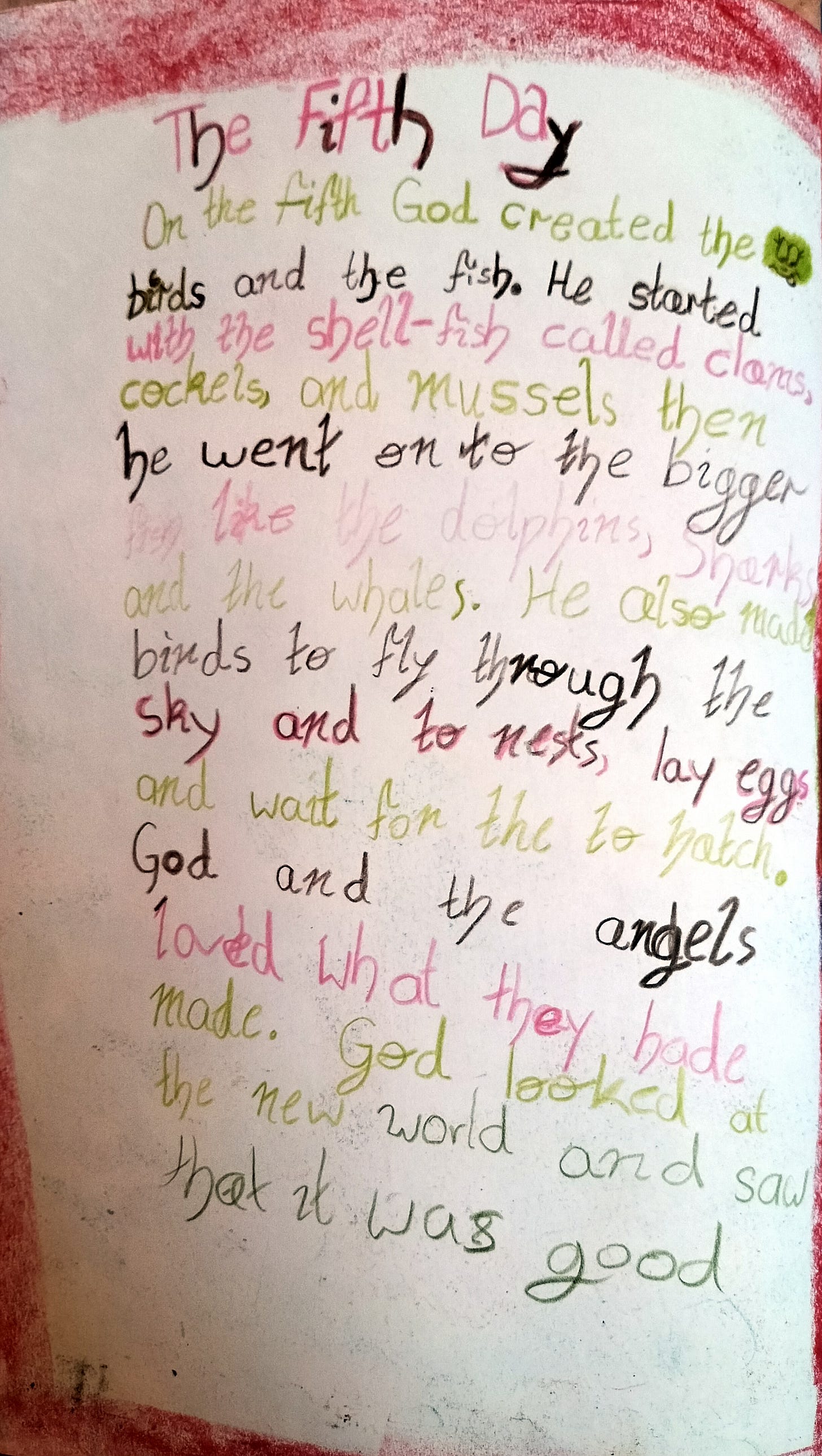
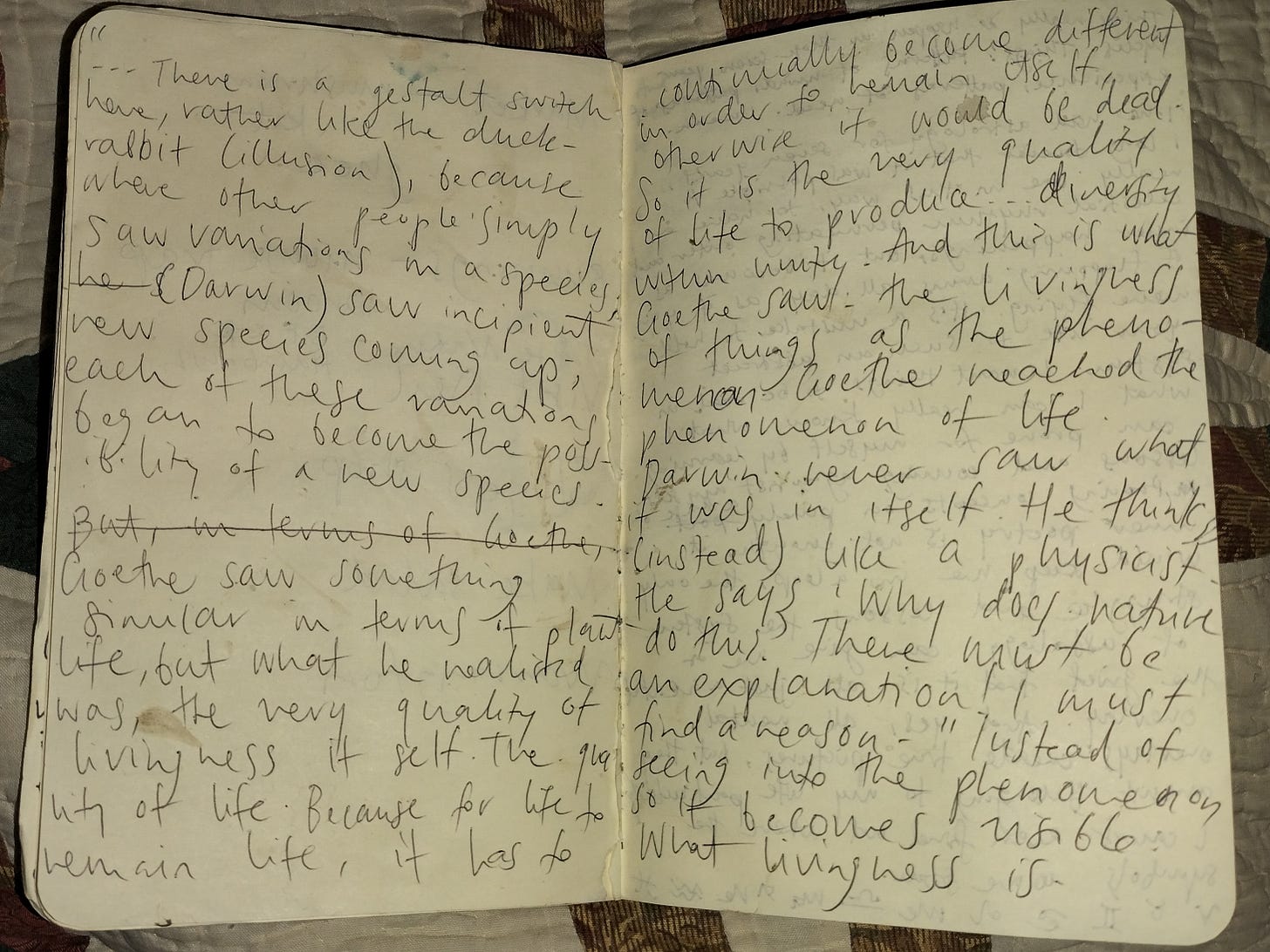
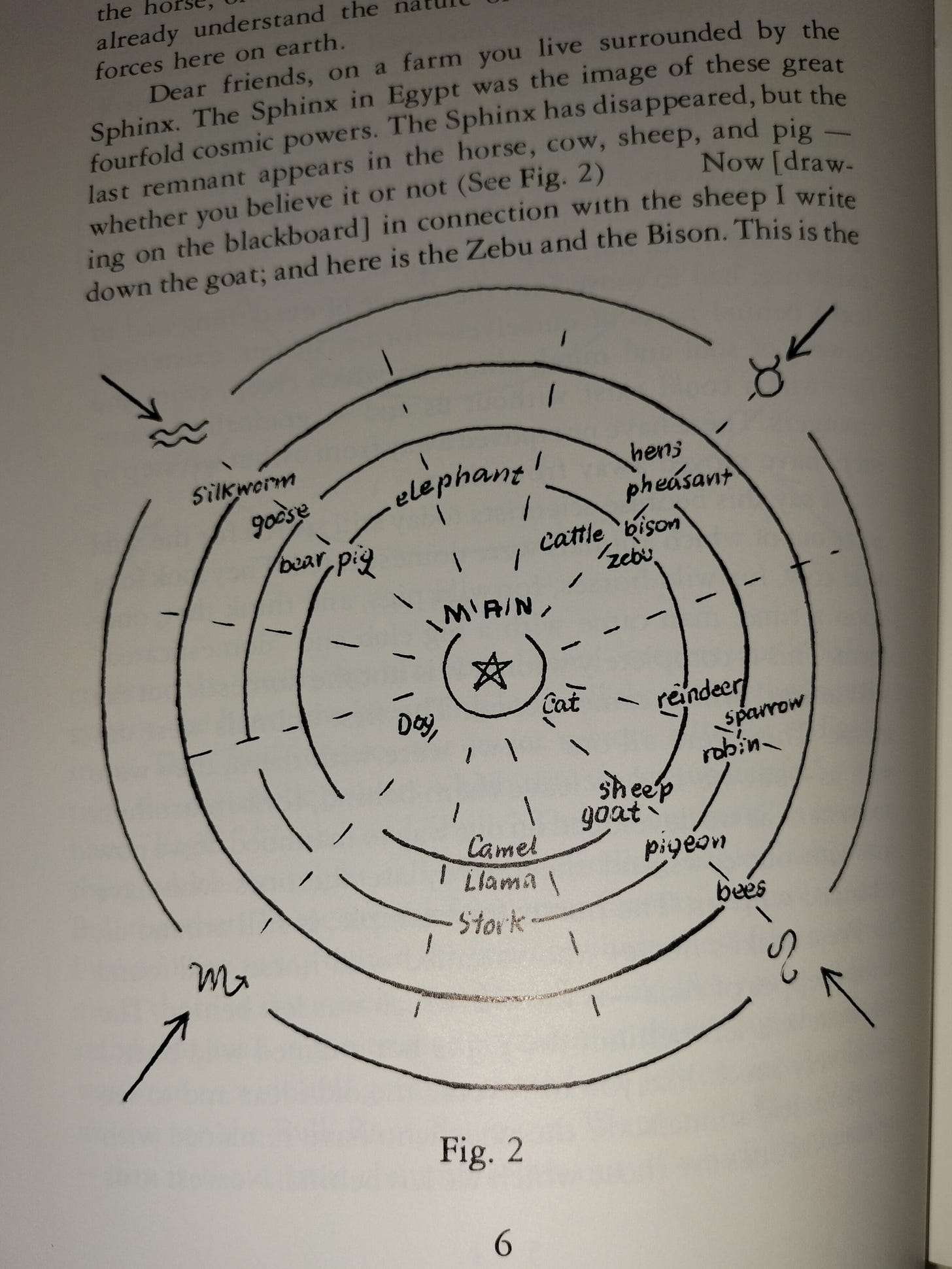
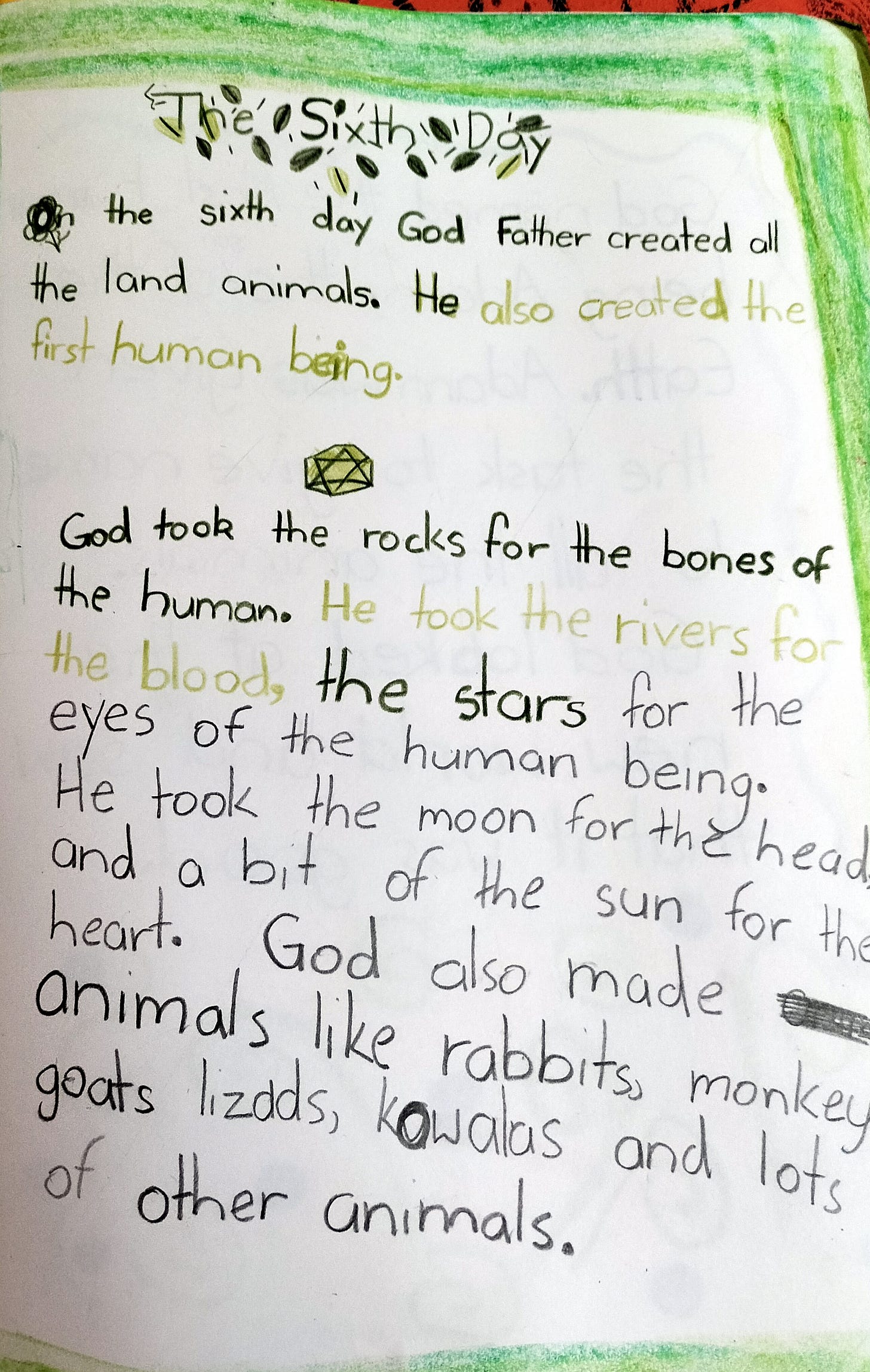
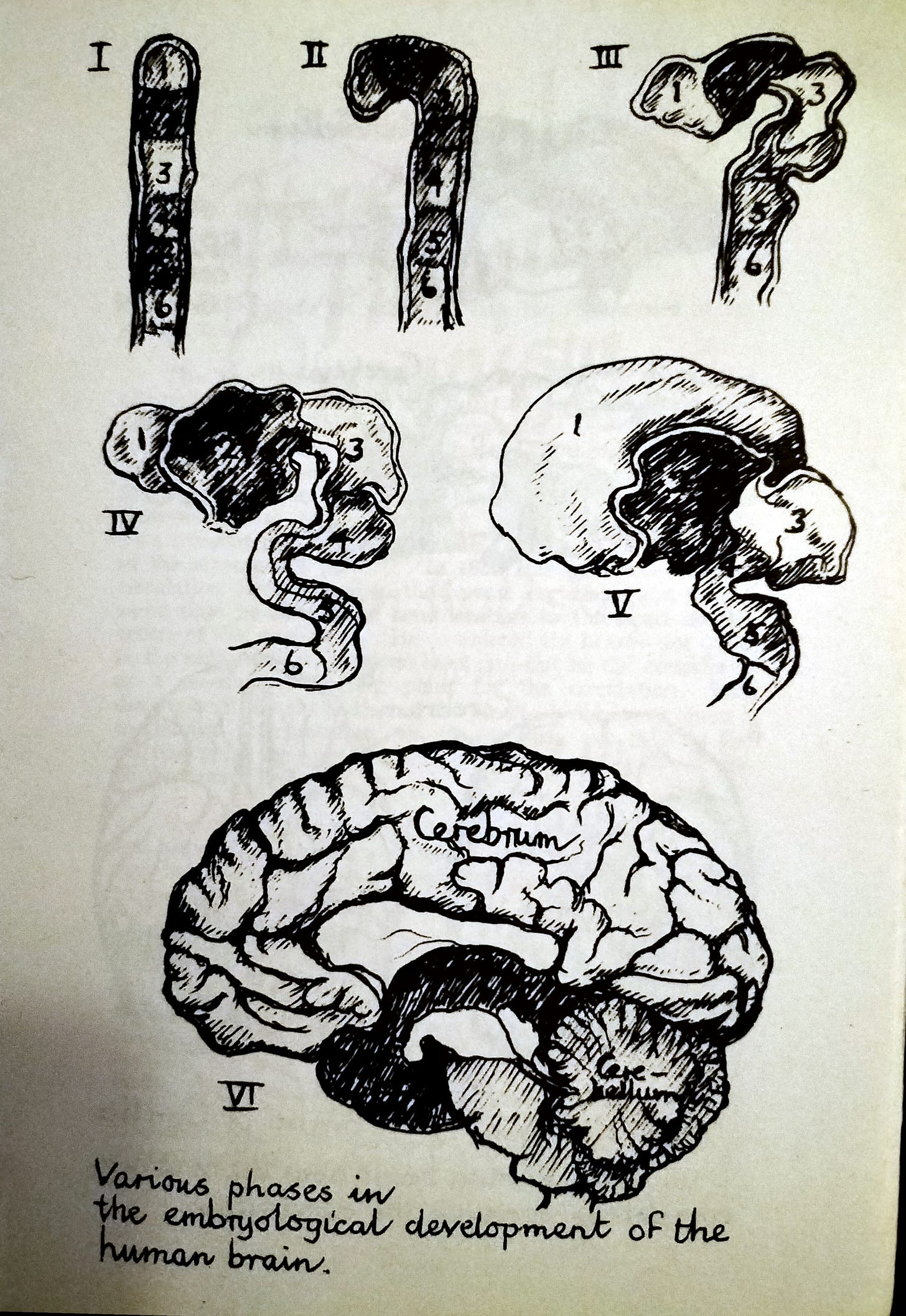
I wish you would write more like this please come back
dude this is actually pretty close from the first two sentences I read but those are tricky words most people misunderstand but I appreciate the perspective